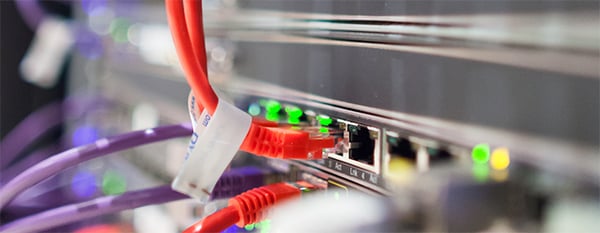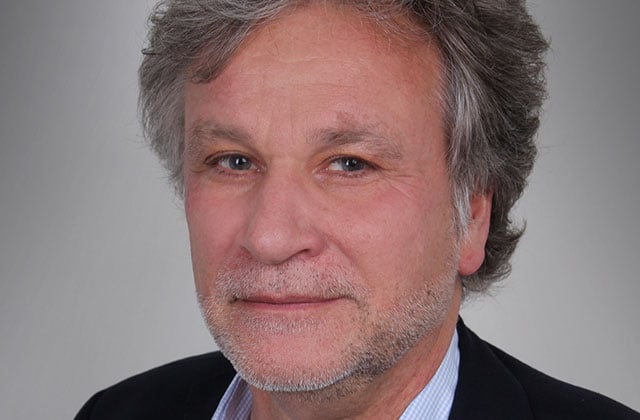- Segments
- Products and solutions
- Products and solutions
- Broadband
- Devices and accessories
- Applications
- Control Rooms
- TETRA and Tetrapol
- Customers
- Ecosystem
- How to buy
- Blog
- EN
“Technology is as only as useful as the mission or task it serves. For instance, we all know Unmanned Aerial Vehicles (UAVs) are the answer, but what is the question? So we have to understand what we use technology for.”
The whole organisation of the urban environment in terms of how to optimise infrastructure, services, supply chains, utilities, traffic and everything else is being transformed by the application of Artificial Intelligence (AI) and sensors everywhere. Urban processes will become faster, cheaper and more reliable for the benefit of everyone. However, there is also the risk that these technologies will be vulnerable to cyber-attacks that can disrupt the processes. We need to ensure that what we do is safe and secure.
While technology can make systems and processes more reliable and efficient, it also creates vulnerabilities to disruption and manipulation. Surveillance technologies, for example, make urban areas safer, help to prevent accidents and make people feel more secure, but they can also be used to control social behaviour. And surveillance will be everywhere. In many countries, you are likely to stay in a hotel room that is not only eavesdropped, but video bugged. So be careful what you say and what you do…
Technology is a double-edged sword. Take the example of the autonomous car. An AI-controlled car is unlikely to run over a pedestrian stepping into the road, it will brake and stop automatically. But then people learn that they can step into the road at any time and know they will be safe. This causes traffic disruption and we find that the selfishness of the individual disrupts the interests of the collective.
Preventing this from happening means either the car is programmed to run over people, or we deploy surveillance. With surveillance everywhere, people know that if their behaviour stops the traffic, they will be fined. If they do it again the fine will increase until they are eventually imprisoned. Many people will have a problem with that approach, but then the society might become hostage to the responsible behaviour of everyone. As surveillance and control will be deployed anyway, the discussion should not only be about our privacy, but rather about how we protect against people’s selfishness and ensure the freedoms of our society.
The real questions for me are about (1) what values we control and (2) who controls the controllers?
The availability of continuous, reliable and secure communications will change the way public safety organisations operate. The trend towards centralisation will continue as public safety forces gain complete situational awareness through total connectivity and data exchange. They will always know the status and readiness of their resources and be able to optimise and coordinate intervention during incidents.

However, while centralisation has economic and efficiency benefits, it also makes us vulnerable. We must ensure resilience and security. When everything is interconnected it is more vulnerable. For example, a decentralised energy network with every house and building generating its own power can withstand an attack better than a centralised electricity network. An attacker would not be able to destroy society by knocking out power stations or power lines. They would have to knock out individual buildings or smaller areas, which is much harder. Likewise, a firefighter may find they have to fight a fire without contacting central control. Central control also tends toward micro management which often turns out to be a prescription for disaster.
You cannot provide total security, so the question is not just about how to prevent attacks, but how to survive them. Resilience and consequence management are key. Modern technology should not only support networking and connectivity, but also enable individual, autonomous systems that are decentralised.
If I were a city planner, I would invite hackers to try to destroy the city, in simulations of course, to understand the weak points so I can learn how to deal with disruption.
AI is a way to make sense of things that would otherwise take years to understand. AI can look at many things and so much information at the same time. It’s why AI is so good at medical diagnoses, better than a doctor who cannot memorise everything.
Yet one day, AI will go beyond what we can do intellectually because it is not constrained in the way biological systems are. The use of intelligence by machines is one thing, but humans can offer reasoning and consciousness. We need to decide what the role of AI is if we do not want to end up in a zoo where robots laugh at us.
AI forces us to think about what makes us human and what role we should have in the future. AI gives us fast advice and insights, but like everything there are risks and it depends how you apply AI. We must think about what we want.
Take a look at the 15 most interesting observations from all the interviewees gathered into a printable document. Get the pdf and print out the quote that most inspires you -
The views and opinions expressed herein are those of the interviewee and do not necessarily reflect the official policy or position of Airbus.
Professor Holger Mey, born in 1958 in Flensburg, Germany, is Head of Advanced Concepts, Airbus Defence and Space, Germany and an Honorary Professor at the University of Cologne, Germany. Before joining Airbus in 2004, Professor Mey worked as an independent policy analyst and consultant.
He once described his role as “thinking about the future, that is trying to understand future security challenges in order to better understand future customer requirements and engaging the customer in a dialogue about possible solutions”.

Professor Holger Mey, Head of Advanced Concepts, Airbus Defence and Space